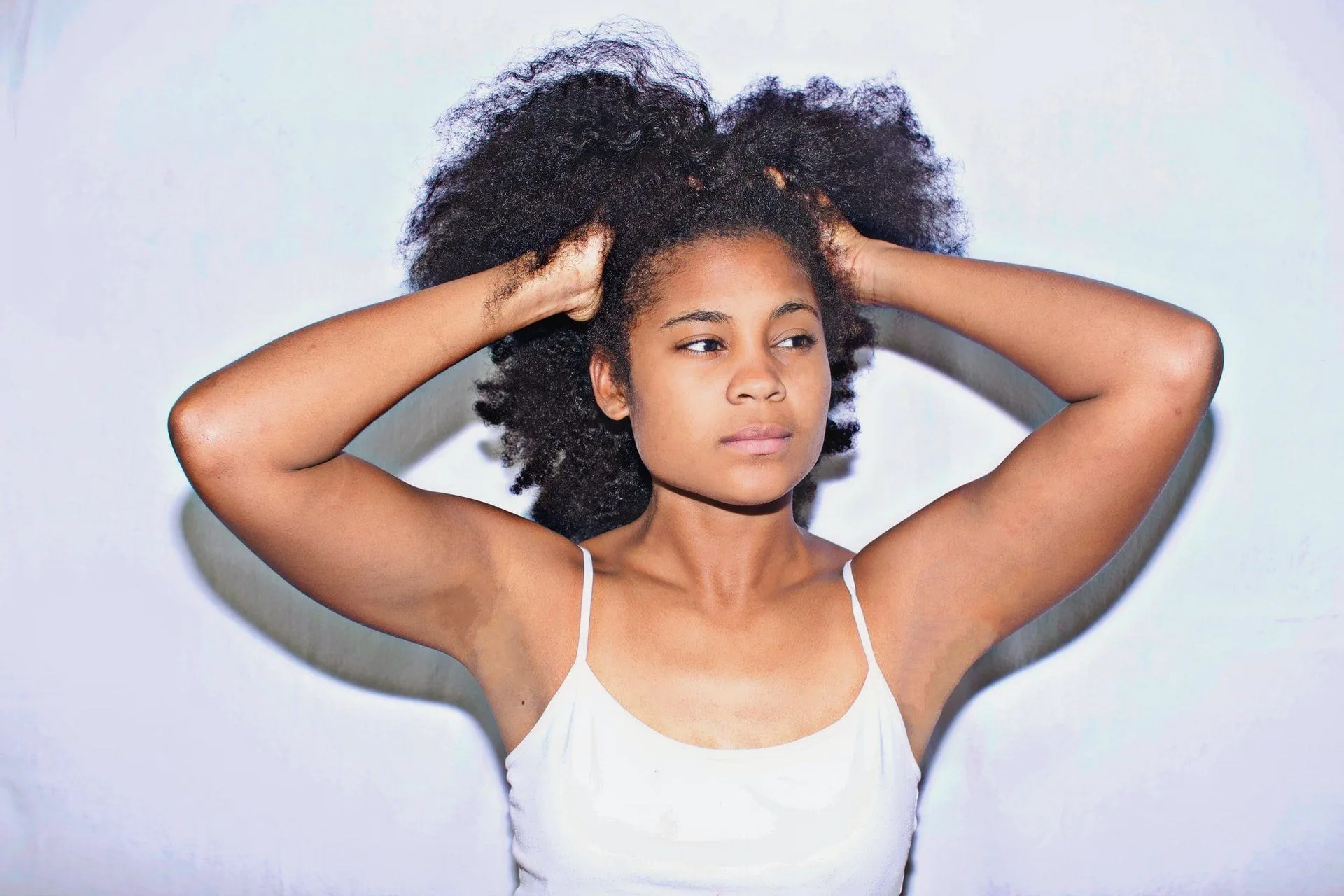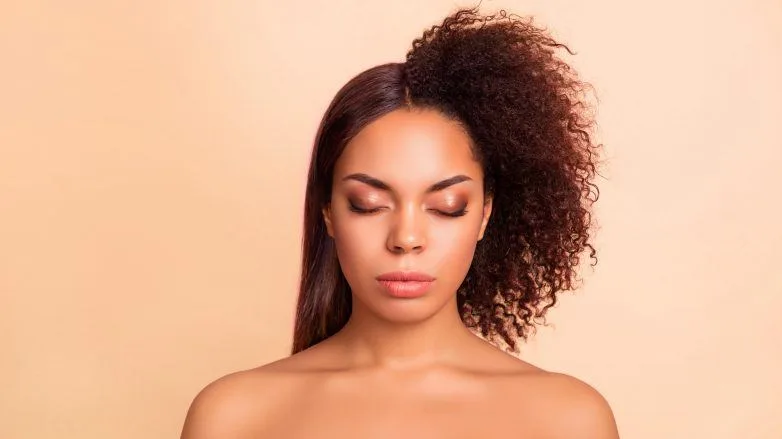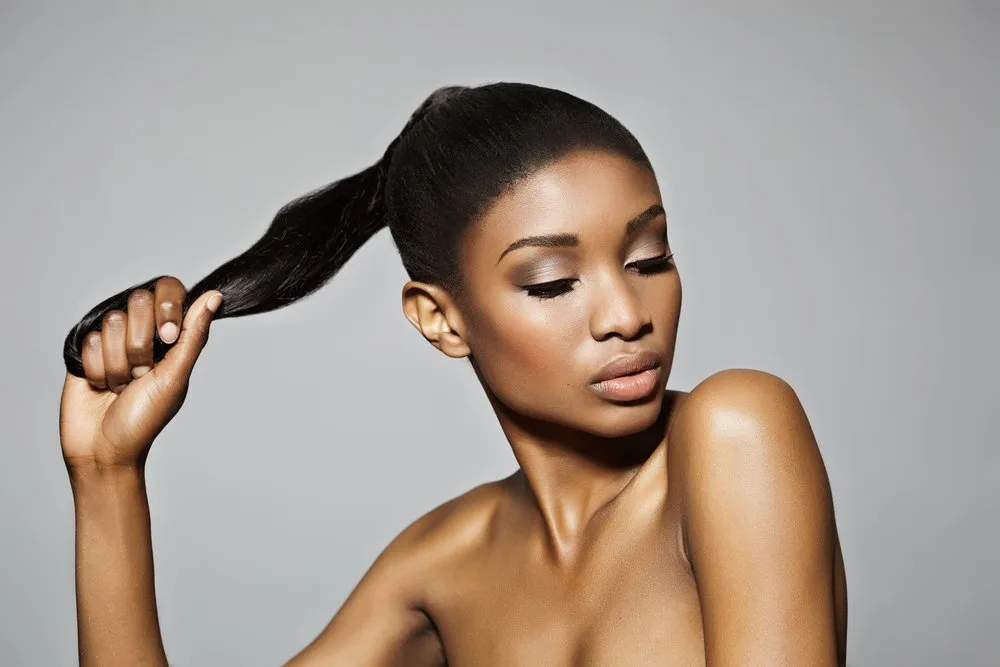According to statistics, uterine cancer is the second most common gynecologic cancer worldwide, with over 400 000 being diagnosed with the condition every year. Age, race, and genetics are common risk factors for the condition. However, one contributing factor to the disease can be linked back to beauty habits, with a recent study suggesting that the use of chemical hair straightening products may increase the risk of uterine cancer.
Hair relaxers and cancer – the link
Alexandra White, a cancer epidemiologist with the National Institutes of Health, had previously engaged in research that looked at the link between permanent hair dye and straighteners and breast and ovarian cancers. Speaking to AFP, she shared that previous research has led her and her team to just focus on uterine cancer.
For the study, White and her team tracked 33 947 women, who were racially diverse and aged 35 to 74, for an average of nearly 11 years. During this time period, 378 of the women in the study developed uterine cancer.
Do hair relaxers cause uterine cancer?
“We estimated that 1.64 per cent of women who never used hair straighteners would go on to develop uterine cancer by the age of 70, but for frequent users, that risk goes up to 4.05 per cent,” said Alexandra White, study lead author

Photo by Dushane white on Unsplash
The study, published in the Journal of the National Cancer Institute, found that the likelihood of one developing uterine cancer was almost two times higher for women who had used hair straightening products more than four times in the previous year.
Endocrine disruptors and hair care
This is not the first study to show the link between hair straightening products and cancer. Previous studies have found that these hair straightening products contain chemicals known as endocrine disruptors. These chemicals mimic or interfere with the body’s hormones, which have been linked to a number of health conditions that include ADHD, Alzheimer’s disease, early puberty, infertility, reproductive disorders as well as childhood and adult cancers.
White explained that the concern is that there are chemicals in these products that act essentially like estrogen in the body, disrupting normal hormonal processes that could influence cancer risk.
Black women face a higher risk
The study found that black women face a higher risk of uterine cancer. This may be because they tend to use hair straightening or relaxer products more frequently. They also tend to initiate use at earlier ages than other races and ethnicities.
“Sixty percent of the participants who reported using straighteners were Black women. The bottom line is that the exposure burden appears to be higher among Black women,” –Chandra Jackson, co-author of the study.
Despite the rise of the natural hair movement amongst black communities, there is still pressure worldwide for black women to conform to Eurocentric beauty standards. Whether it’s straightening their hair, or lightening their skin, black women often have to turn to harmful products in order to achieve these beauty standards. With more and more black women and children being reprimanded for the manner in which they wear their hair, sometimes the easier choice is to straighten their hair, regardless of the risk to their health.
Thankfully, governments are passing laws that address the discrimination that black women may face in regard to their hair. The CROWN Act, which stands for Creating a Respectful and Open World for Natural Hair, was passed earlier this year. The act prohibits “discrimination based on an individual’s texture or style of hair.”
While the Senate has yet to vote on the bill, 18 states have signed it into law.
Do I need a relaxer to straighten my hair?
So you may not be a fan of the natural look. However, there are ways for you to straighten your hair without necessarily risking your health. These methods include:
- Blow drying with cold air
- Using plastic rollers
- Hair straightener – be sure to apply a heat protectant to your hair before doing so
Bottom line
Unfortunately, the researchers were not able to collect information on the brands of the products, and they believe doing so would have further strengthened their findings.
Nonetheless, they do believe that the study does to a growing body of evidence that “hair-straightening products are associated with hormone-related cancers in women,” and they call for evidence-driven policy changes.
References
Chang, C. J., O’Brien, K. M., Keil, A. P., Gaston, S. A., Jackson, C. L., Sandler, D. P., & White, A. J. (2022). Use of Straighteners and Other Hair Products and Incident Uterine Cancer. Journal of the National Cancer Institute, djac165. Advance online publication. https://doi.org/10.1093/jnci/djac165
Sung, H., Ferlay, J., Siegel, R. L., Laversanne, M., Soerjomataram, I., Jemal, A., & Bray, F. (2021). Global Cancer Statistics 2020: GLOBOCAN Estimates of Incidence and Mortality Worldwide for 36 Cancers in 185 Countries. CA: a cancer journal for clinicians, 71(3), 209–249. https://doi.org/10.3322/caac.21660






![women [longevity live]](https://longevitylive.com/wp-content/uploads/2020/01/photo-of-women-walking-down-the-street-1116984-100x100.jpg)










